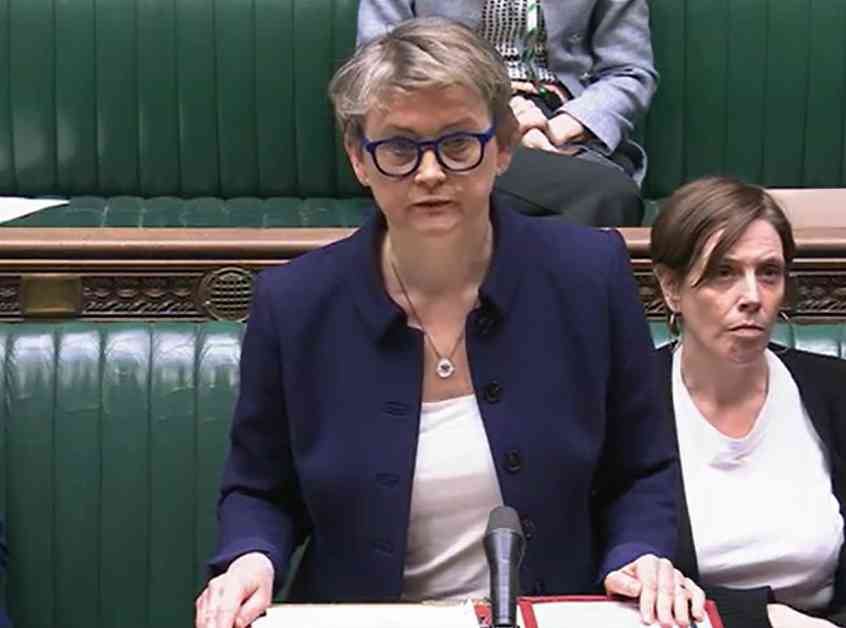Home Secretary Yvette Cooper has come under fire for her decision not to initiate a national inquiry into child sexual abuse, a move that has left many questioning the government’s commitment to tackling these heinous crimes. Amidst growing concerns about the adequacy of data collection by police forces and the lack of proper reporting mechanisms for abuse, Cooper faced a barrage of criticism from MPs in the Commons.
Government’s Response
Cooper defended her stance by highlighting the Government’s efforts to address the issue through other means, such as making it mandatory to report abuse and establishing a victims and survivors panel to provide guidance on broader initiatives surrounding child sexual exploitation and abuse. She emphasized the urgency of the situation, stating, “These crimes have not been taken seriously for too long, and far too many children have been failed.”
Calls for a National Inquiry
Despite Cooper’s explanations, Shadow Home Secretary Chris Philp reiterated calls for a national inquiry, arguing that it is essential to ensure justice for victims of mass rape. Philp’s demands were met with strong opposition, with Cooper maintaining that the focus should be on implementing concrete changes to policies and services rather than launching a new inquiry.
Challenges in Data Collection
One of the key issues raised during the debate was the lack of comprehensive data on the ethnicity of perpetrators of child sexual abuse. Philp pressed Cooper to disclose whether this information would be made public, highlighting the importance of transparency in addressing the root causes of these crimes. Cooper acknowledged the shortcomings in current data collection practices, citing a need for more robust systems to track and monitor such offenses.
As the debate unfolded, it became evident that the Home Secretary’s decision had sparked a heated discussion on the government’s approach to combating child sexual abuse. With mounting pressure from opposition MPs and calls for a national inquiry gaining momentum, Cooper’s handling of the situation continues to be scrutinized, raising concerns about the effectiveness of current measures in safeguarding vulnerable children.
In the midst of these deliberations, the human side of the issue cannot be overlooked. Behind the statistics and policy debates are real lives impacted by the trauma of abuse. It is crucial to remember that every decision made in the realm of child protection has profound implications for the victims and survivors who are seeking justice and closure. As the political discourse unfolds, the voices of those directly affected by these crimes must remain at the forefront of the conversation to ensure that their needs and concerns are not overshadowed by bureaucratic debates and partisan disputes.












